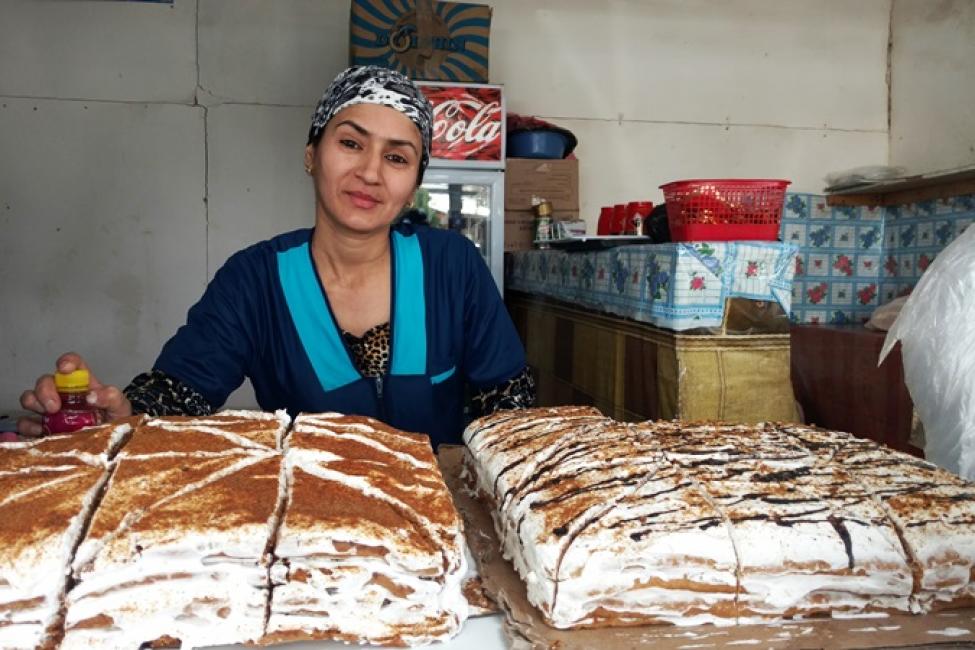-
Who We Are
WHO WE AREThe International Organization for Migration (IOM) is part of the United Nations System as the leading inter-governmental organization promoting since 1951 humane and orderly migration for the benefit of all, with 175 member states and a presence in over 100 countries. IOM has had a presence in Tajikistan since 1993.
About
About
IOM Global
IOM Global
-
Our Work
Our WorkAs the leading inter-governmental organization promoting since 1951 humane and orderly migration, IOM plays a key role to support the achievement of the 2030 Agenda through different areas of intervention that connect both humanitarian assistance and sustainable development. Across Tajikistan, IOM provides a comprehensive response to the humanitarian needs of migrants, internally displaced persons, returnees and host communities.
Cross-cutting (Global)
Cross-cutting (Global)
- Data and Resources
- Take Action
- 2030 Agenda
Do you know names of people, who helped me? No? I simply wanted to know whom to send blessings upon”.
Saida Safarova looks super smart and active in serving clients in her small stall of food, beverages, and sweets in the busy central market of Bokhtar, main city in the south of Tajikistan. To be fast, but not furious is what requires the busy life at an Eastern market – you need to have a good location, good food, good prices, and good approach to deal with market administration and regular customers.
But Saida, 41, was not always like this. Last year these days, she was depressed, stressed, sick, with no self-confidence, and unsure what to do next. Returned from Russia, where she lived for a decade and half with her husband and three Russia-born children, she surprisingly found out that cannot go back to Russia as was placed to the re-entry ban list. More than 250,000 Tajik citizens are in this list currently. She even did not know the reason – the Russian migration legislation is enough complex for an ordinary migrant to understand all the rules and is enough hostile to have no mercy for minor violations.
By that time, Saida’s husband had been missing for years in Russia. After overcoming the shock that she cannot return to the city of her last 15 years of life, where she had a stable enough-paid job, she counted her last $400 remained in her hand and wanted to start a business. She recalls:
“I decided to buy and sell fruits, but didn’t have a proper experience at that moment and lost all my savings. I also lost my physical and mental health. The next several months my only daytime places to visit were hospitals”.
Visiting doctors was useful not only to revive her health, but also to return a hope to her. A doctor, who knew of a project to support returned migrants to start an income generating business, told her where to go. She went to “Akhtari Bakht”, Bokhtar-located civil society organization, which supports the International Organization for Migration in implementing USAID “Dignity and Rights” project. “Akhtari Bakht” Director Mohinisso Shohnazarova says:
“Saida was in bad situation and condition. She had three children and no place to live. She was temporary sheltered by her brother, but this could not long last. She could not feed children, so had to give one to an orphanage and two others to her siblings. She came to us, she shared her story”.
She also shared information on her abilities – in Russia Saida used to bake sweets at a confectionary shop. She was chosen as a beneficiary of the project, received training to manage the business, received a fridge, a thermos, a toaster, a microwave, an oven, a compote maker, and other equipment to bake sweets and cook national food, and started a new life. The assistance brought her back not only an income, but self-confidence and hope to a better future.
Only a year later she bought two more fridges herself, expanded the business, increased number of products to sell, and employed another local woman as an assistant. Saida can allow herself to transform dreams to plans now – having own place to live in, bringing children in, and educating them.
She looks strong now and believes in herself. She wants me to write her words of thanks to those American people, who returned her to life:
“I don’t know names, but I know – they are wonderful people. Please, do not forget to write that I am very thankful to them, sincerely, and I virtually shake their hands and say – tashakkur (thank you!)”




